- About Us
- Columns
- Letters
- Cartoons
- The Udder Limits
- Archives
- Ezy Reading Archive
- 2024 Cud Archives
- 2023 Cud Archives
- 2022 Cud Archives
- 2021 Cud Archives
- 2020 Cud Archives
- 2015-2019
- 2010-2014
- 2004-2009
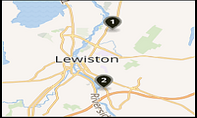 |
(Jan 2024) Eighteen More |
If you’re not an American, imagine that you are. You live in a country with a constitutional right to bear arms, and you understand why we can’t just get rid of guns like throwing a switch, so you endure constant gun violence that dwarfs all nations in the developed world. No matter which side of the Second Amendment debate you’re on, you feel badly when people die from gun violence.
You live in the mostly rural state of Maine, way up in the northeast corner of the country. One day, people die in a mass shooting halfway around the world, in a country that’s so different from yours that it might as well be Mars. You see the story on the news and think, “Oh, that’s terrible.” Fortunately, it’s half a world away, so you forget about it and move on.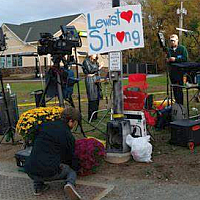
Then comes another mass shooting in another distant country, but one that’s culturally familiar to you, so it hits you harder. “How horrible that anyone could do that!” you say. At work, someone mentions it; you discuss how terrible it is for a while; but, thankfully, it’s still so far that it doesn’t affect you.
The next mass shooting is in California. The death toll stuns you. You talk about it with family and friends for days, always through the lens of your particular gun-control stance. No limits on gun rights? Repeal the Second Amendment? Somewhere in between? Regardless, another batch of Americans has been slaughtered like cattle, and someone must solve this problem. But nobody does, and California is three time zones away, so you soon go on with your life.
The next mass shooting happens in Connecticut, in the same New England region as Maine. You could drive there today. You shed tears for the next-door horrors, and you’re worried at how close the danger is, so this one is harder to forget. For a while, the talking heads on television argue and change nobody’s mind, and the elected officials in Congress listen to themselves give pointless speeches. Then it’s on to other things. Nothing changes.
And then it happens in Maine. When a gunman opens fire in a bowling alley and later a restaurant in Lewiston, killing eighteen innocent people, this is in your backyard. Maine is geographically large, but Lewiston is a quick drive from almost everywhere in the state (within two hours for the vast majority). The victims aren’t half a world away or even a few states away. This mass shooting is here. The rampant gun violence is now. The savage atrocity is real. You cry for those who died so needlessly and violently, and you fear for your safety, because the killer is still out there.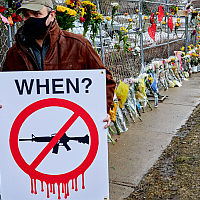
Then you talk to people who knew the victims, and they tell you about experiences they shared with those people. Now they aren’t just faceless names, or meaningless faces, on some news story. They’re not just two-dimensional characters anymore. These victims have depth because you’ve learned some small bits about who they were. They’re not slaughtered cattle anymore; they’re murdered people.
But imagine that you know one of the victims—perhaps a co-worker or a friend. Maybe it was a loved one—someone with whom you shared experiences. This person is substantially more three-dimensional. Instead of stories from others, you recall when you did this together or went there together. It’s the child you hugged or the spouse you loved or the parent who raised you.
Now the crying doesn’t stop. This can’t be happening—not here, not in your neighborhood. And there will be candlelight vigils and calls to action, and there will be more arguing and lecturing, and Congress will once again refuse to do anything about it.
This is how it happens. The further away it is, the less we truly care. As it gets closer, it gets more real, more terrible, more unbearable; you go from feeling badly to sympathizing to empathizing… to living the horror. You perceived distant victims as little more than stick figures—but not this time. You can’t brush this off with “Oh, that’s terrible” or “Someone should do something about this.” It’s with you forever, like a knife always twisting in your gut. You can’t get any closer to the horror of gun violence that this.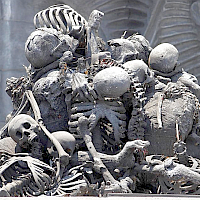
Well… actually, you can.
You could be a victim. You could be an innocent person bowling a string or eating a burger when someone comes in and starts shooting. You’re lying on the floor, immobilized; you can feel the pool of blood growing cold beneath you. You’re in agony, and you know you’re not going to survive. Your life is about to end because someone who should never have had guns pointed one at you and pulled the trigger. Nothing personal. Wrong place, wrong time.
As your consciousness fades toward oblivion, what would you be thinking? You’re in pain, frightened, alone—and dying… for what? If you blindly championed Second Amendment rights, I bet your final thought would NOT be, “Thank goodness those NRA and GOP heroes keep fighting for everyone to have all the guns they want, without exception…”
I don’t know how to change this. If a small army went to some big NRA picnic and mowed down several thousand members with the very mass-murder weapons the NRA supports, the survivors would probably STILL champion the cause. They’d talk about how horrible the mass shooting at the NRA picnic was, but they’d still defend the Second Amendment as if it matters more than your right to stay alive.
But I bet the NRA victims lying there bleeding to death would probably have a deathbed conversion and realize that there SHOULD be common-sense limitations on guns. Like with every death from gun violence, it will be far too little far too late.
Eighteen innocent people died in Lewiston, Maine, from the bullets of a man who never should have had a gun. If you’re far away and don’t feel the full effect of this, picture those dead people as a pile of bodies, torn apart by gunfire and soaked in blood. See if that image has more of an effect.
And we’re not done visualizing. Eighteen dead innocents is horrible, but it’s not JUST eighteen. It’s eighteen MORE.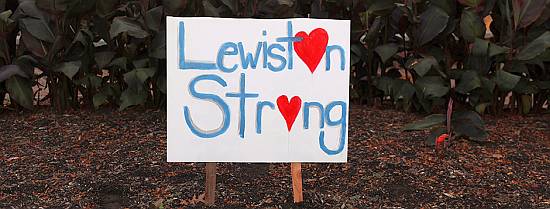
Now pile on the victims of every other mass shooting in America. In my 54-year lifetime, it’s far north of half a million murdered with guns, and that many more who died by suicide with the same. Pile them up. Stack up a million or more dead people until the mountain of their blood-soaked bodies towers so high that selfish, mindless, barbaric gun nuts will come from miles around to pose with their AR-15’s in front of it. They’ll have big smiles and bigger egos—because, folks, all those deaths are horrible, but that mountain of corpses wouldn’t be possible without YOUR Second Amendment rights!
When does it stop?
The answer is either “never” or “someday.” I think it will be “someday.” I just can’t imagine how much bigger that colossal heap of dead people will get before “someday” finally comes.
David M. Fitzpatrick is a fiction writer in Maine, USA. His many short stories have appeared in print magazines and anthologies around the world. He writes for a newspaper, writes fiction, edits anthologies, and teaches creative writing. Visit him at www.fitz42.net/writer to learn more.
